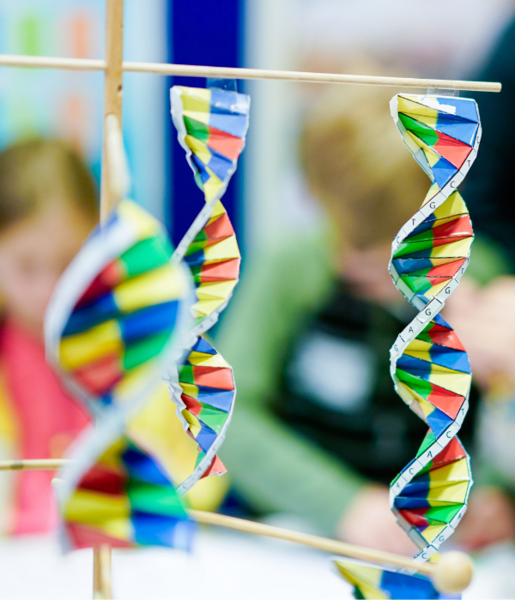Until a few years ago, genome-wide examinations were a very rarely used method. Today, it has almost become the standard, from which many patients benefit. Steady progress in sequencing technology and falling costs make it possible to comprehensively analyze the entire genome not only in studies, but also in human genetic diagnostics. Genetic information holds great potential, particularly in the case of oncological and rare diseases. With their help, physicians can make faster and more precise diagnoses and often treat the diseases in a targeted manner.
At the same time, the comprehensive genetic findings pose a challenge. The large amount of data increases the likelihood that doctors will discover genetic changes that may also be relevant to health - so-called additional findings - in addition to the disease-relevant information originally sought, the primary findings.
The Heidelberg group EURAT has investigated this area of tension for additional genetic findings in minors. EURAT stands for Ethical and Legal Aspects of Translational Medicine. The interdisciplinary group includes scientists from the National Center for Tumor Diseases (NCT) Heidelberg, Heidelberg University Hospital (UKHD), the German Cancer Research Center (DKFZ), Heidelberg University, the Hopp Children's Cancer Center Heidelberg (KiTZ) and the University of Hamburg.
Eva Winkler, Managing Director at NCT Heidelberg and Head of the Translational Medical Ethics Section at UKHD, is the spokesperson for the project group. She says: "Until now, it has been unclear which additional findings from studies should be reported back and how this can be explained, especially when it comes to findings from minors. This is where our statement comes in and, for the first time, provides recommendations on which categories of findings should be offered."
EURAT's recommendations are based on legal and ethical analyses. They are intended to help establish an adequate information and consent process. This reduces the likelihood of conflicts when physicians identify additional genetic findings in minors.
An ethical challenge exists, for example, in the case of findings that only become relevant when the child reaches adulthood and where the question arises as to whether these findings should be communicated to the parents now. Other additional findings, on the other hand, require rapid treatment measures. In addition, siblings or other family members may be affected by additional findings. It is also important for the procedure whether the illnesses to be expected on the basis of the additional findings are basically treatable. In its statement, the EURAT Group therefore distinguishes between five different categories of additional findings and derives differentiated recommendations.
For example, additional findings that can avert immediate danger should always be communicated to the parents in order to protect the child's welfare, without them being able to refuse. On the other hand, if there is no imminent danger to life and limb, the child's right to decide whether or not to provide feedback should not be ignored. The child exercises this right on behalf of its parents.
If no medical benefit is apparent from the feedback and the illness associated with the additional findings only occurs in adulthood, additional findings should not be offered to the parents for feedback during the consent process. For minors who are classified as capable of giving consent, the recommendation is that they should in principle be allowed to receive or refuse all additional findings.
In addition to the recommendations of the statement, EURAT provides an information brochure for parents and affected persons as well as text modules for the information and consent process, which takes into account possible additional genetic findings in minors.




